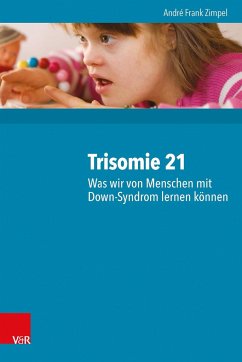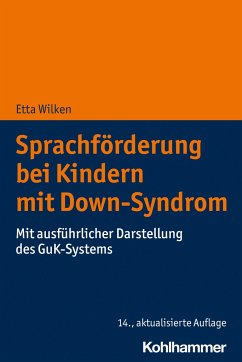
Trisomy 21
What we can learn from people with Down syndrome
Mitarbeit: Hurtig-Bohn, Kim Lena; Kalmutzke, Angela; Rieckmann, Torben; Röhm, Alfred Christoph;Übersetzung: Com-Unic, hotline & translation service GmbH & Co. KG
Versandkostenfrei!
Versandfertig in 2-4 Wochen
25,00 €
inkl. MwSt.
Weitere Ausgaben:

PAYBACK Punkte
0 °P sammeln!
For a long time, it was assumed that a genetic disposition such as trisomy 21 enables predictions to be made about overall personality development. But, who could have ever imagined that people with trisomy 21 (Down syndrome) would also be capable of earning a university degree? We studied 1,294 people with trisomy 21. The results showed that people with trisomy 21 benefit more from abstract learning than their neurotypical counterparts. Two-year-olds with the syndrome first learn to read and only then to speak and will understand algebra better than arithmetic. Ignorance of neurodiversity ine...
For a long time, it was assumed that a genetic disposition such as trisomy 21 enables predictions to be made about overall personality development. But, who could have ever imagined that people with trisomy 21 (Down syndrome) would also be capable of earning a university degree? We studied 1,294 people with trisomy 21. The results showed that people with trisomy 21 benefit more from abstract learning than their neurotypical counterparts. Two-year-olds with the syndrome first learn to read and only then to speak and will understand algebra better than arithmetic. Ignorance of neurodiversity inevitably leads to learning difficulties when these people are forced to learn at the same pace as others. This applies to autism and trisomy 21 to the same extent. That is why this book advocates the recognition of trisomy 21 as a variant in the spectrum of human neurodiversity.
Dieser Artikel kann nur an eine deutsche Lieferadresse ausgeliefert werden.













